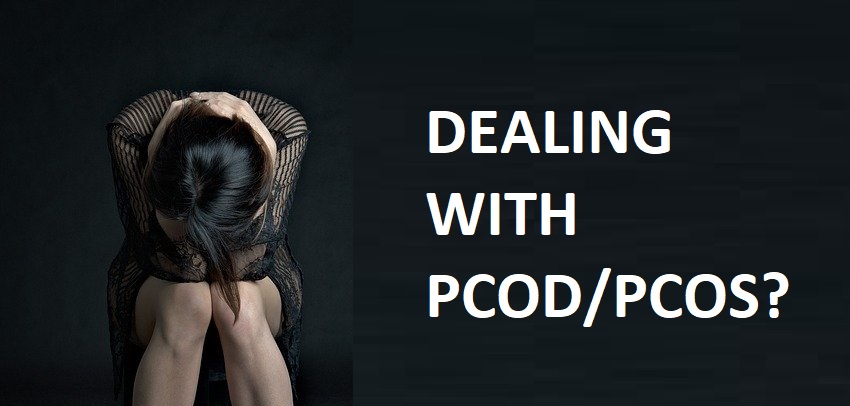Never turn a blind eye to your body’s symptoms.
What is PCOD?
Polycystic Ovarian Disease (PCOD) is also known as Polycystic Ovary Syndrome (PCOS). It is a common condition that affects 5% to 10% of women between 12 – 45 years. Most women discover this at age 20 and 30 when they find it difficult to conceive and see their doctor. But PCOS can occur any time after puberty. Most women also discover about PCOS when they suffer from the problem associated with hormonal imbalance.
What Causes PCOD?
PCOS seems to run in families, so the chance of having it is higher if other women in your family have PCOS, irregular periods or diabetes.
It is linked to a sexual hormonal imbalance. As a result, women stop ovulating. She suffers from many pimples and increased facial and body hair growth.
Ovaries are too affected; the eggs in these follicles mature and fail to release from the ovaries. Instead, they may form small ovarian cysts.
Common Symptoms of PCOD/PCOS include:
- Acne
- Weight gain and also the trouble of losing weight
- Additional facial & body hair. Women suffer from thick, dark facial hair, and they will find more hair on their chest, belly and back.
- Thinning on the hairline of the scalp.
- Irregularities in periods. Some women even face a problem without periods, or others have abundant bleeding.
- Trouble with fertility.
- Depression and Anxiety
PCOD/PCOS Complications:
- Increased risk of endometrial cancer
- Infertility
- Obesity-related disorders such as high blood pressure, cardiac problems and diabetes.
- Potentially heightened risk of breast cancer.
Foods to Avoid:
Nutrition plays an essential role in our lives. However, certain foods you should avoid if you are dealing with PCOD.
- Foods with high levels of refined carbohydrates, such as white bread and muffins.
- Sugary snacks and beverages
- Processed foodstuffs and red meat.
Well, pretty ladies, if you’re into these kinds of symptoms, then it’s for you…
You can’t isolate yourself from your relationships. It is common to have stress and depression. Because due to weight gain, baldness, loss of beauty can lead you to a path of depression (which is natural)
But has that ever occurred to you? Your depression can get worse, which can knock you down in a pit. Keep in mind that depression never helps you. Mood swings or emotional volatility can also be a symptom of depression. Since mind and body are interrelated, changes in one can affect others. My personal opinion about depression is that depression is the soul of evil, who will possess your mind to injure you or kill you. So if you are in one of these signs, please check it out with your doctor or talk with someone you trust.
Be on a nutrient-rich diet. Exercise regularly to empower and improve your PCOS and mood.
Eat healthily, keep your blood sugar levels steady, which is vital to balance your mood – it also helps you lose weight.
Being physically active will raise your mood, and it will release wellness chemicals in your brain called endorphins.
Exercise may also be a welcome distraction from any evil, negative thoughts that will improve your social interaction. You may also participate in meditation; meditation may help you to relax.
Find a form of exercise that makes you happy: walking, running, swimming, yoga or whatever sports activity you prefer. Even five minutes of dancing will do a better job of stimulating your mood.
Educate yourself. Knowledge is power
Read good books, spend a bit of time that’s appropriate for you. Read some good stuff if you are fond of poems, fictional novels, short stories or self-care books. Give yourself this happiness; reading enhances your stress level.
One of the best ways is to communicate your emotions openly with your family, friends or doctor. NEVER ISOLATE YOURSELF FROM SOMEONE OR ANYTHING.
Finally,
Asking for help is courage, not weakness.




